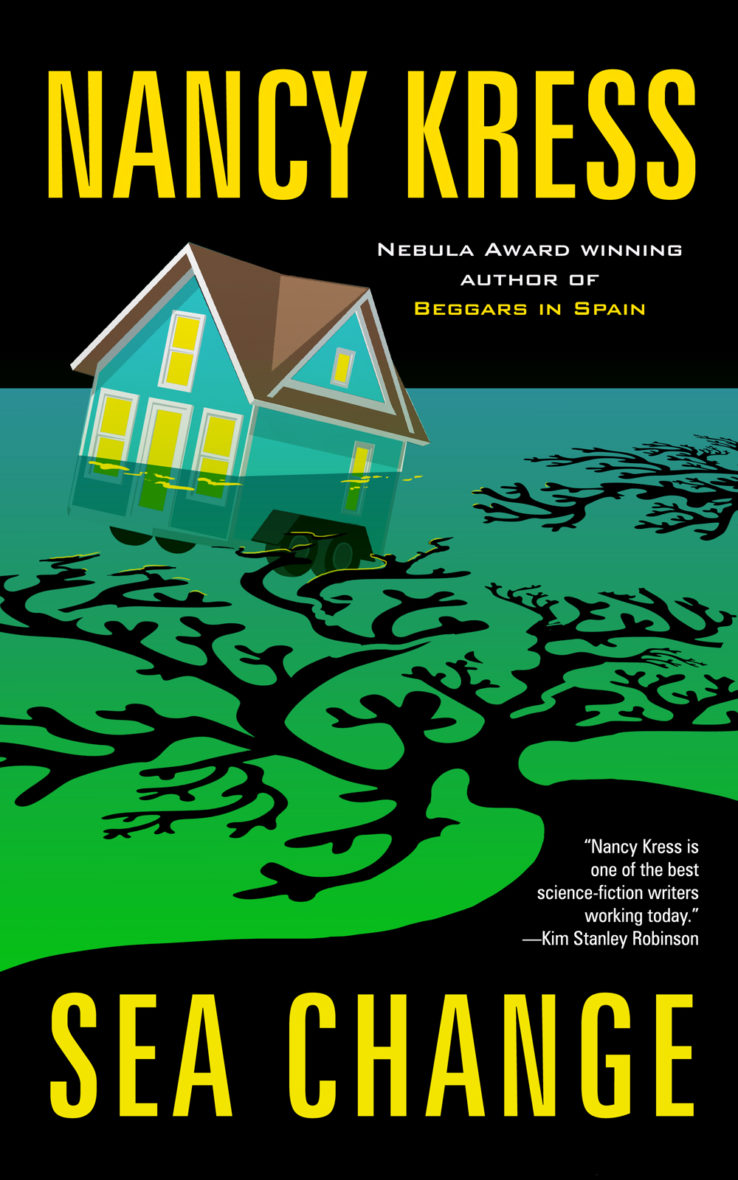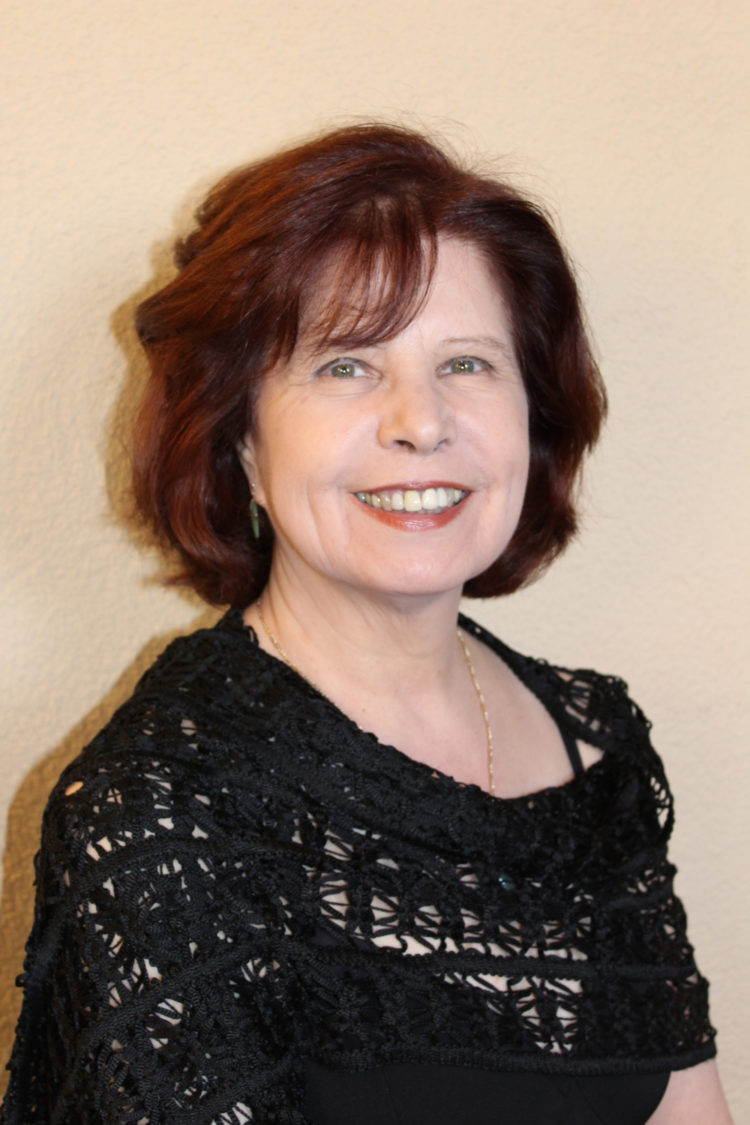With SEA CHANGE, Nancy Kress successfully renders a global-scale conflict in intimate terms
The recently released SEA CHANGE by Nancy Kress continues to garner notice.

THE 1000 YEAR PLAN praises the book.
Kress, a long-established master of conjectural sci-fi, renders a global-scale conflict in intimate terms. The obstacles Renata faces and the choices she makes have deeply personal consequences for her as well as world-changing implications, allowing the author to effectively whittle away the border between the macro and the micro.
For FEMALE FIRST, Kress contributed the essay “Saving The World, One Carrot At A Time“.
I’m always a little suspicious when writers assert confidently their one specific source of inspiration for a given story. Fiction comes from a deep well within each writer, a well filled with everything one has experienced, seen, read, heard, thought about, all sloshing around down there and cross-breeding like some promiscuous water-borne micro-organisms. With luck, the combinations spawn a story.
In the case of my novella Sea Change, however, I can identify the three things that moved me to write this story. For me, not only is this atypical, but the elements floated into mind in an order atypical for me.
The first was a cause I believe in. Starting with a cause is dangerous, because it can lead to a polemic rather than a story. The way around this is to present your cause, first, in terms of how it affects your character (and it had better do so deeply, viscerally, urgently). Second, present your cause in a balanced way, showing not just the pluses but also the minuses. There is, after all, no free lunch.
The cause that interests me is genetically altered crops. There is a huge prejudice among many people against GMOs, mostly because there is so much disinformation out there. For hundreds of years agriculturists have cross-bred strains of crops and even different species (tangelos, anyone?) Genetic engineering just does it faster and more reliably. Is it “natural”? No. Neither is putting antibiotics into your body to cure plague. Or transplanting a heart from one body to another.
My passionate belief in GMOs comes from knowing how necessary they will be to feeding the world in the future, particularly poor countries. Rising temperatures and increased flooding of coastal growing areas, plus a growing global population, all make food insecurity a problem that is not going to go away. Already, the UN estimates, 10% of the world suffers from chronic hunger, and a disproportionate number of them are women and children. Crops engineered for greater yields and changing growing conditions can and will help.
Jim Higgins and Chris Foran of MILWAUKEE JOURNAL SENTINEL list the title among 71 books for summer reading in 2020.

